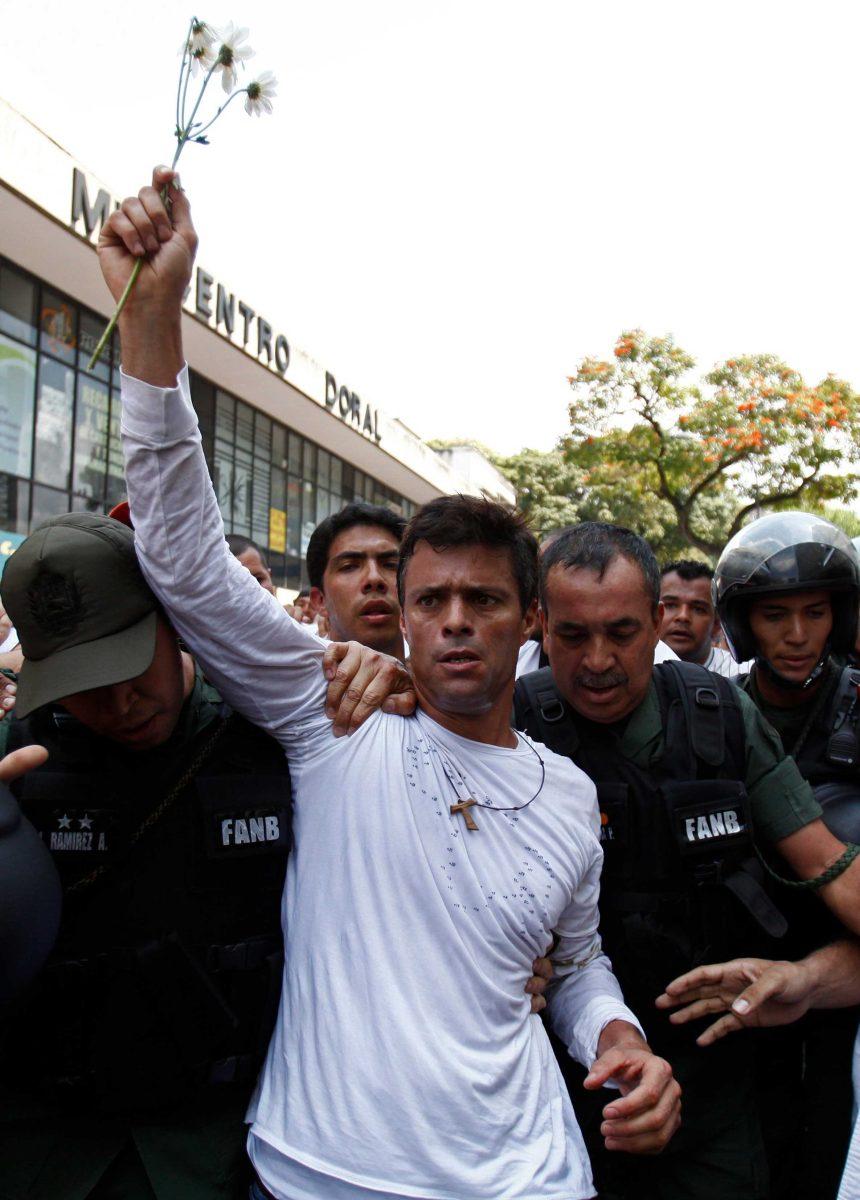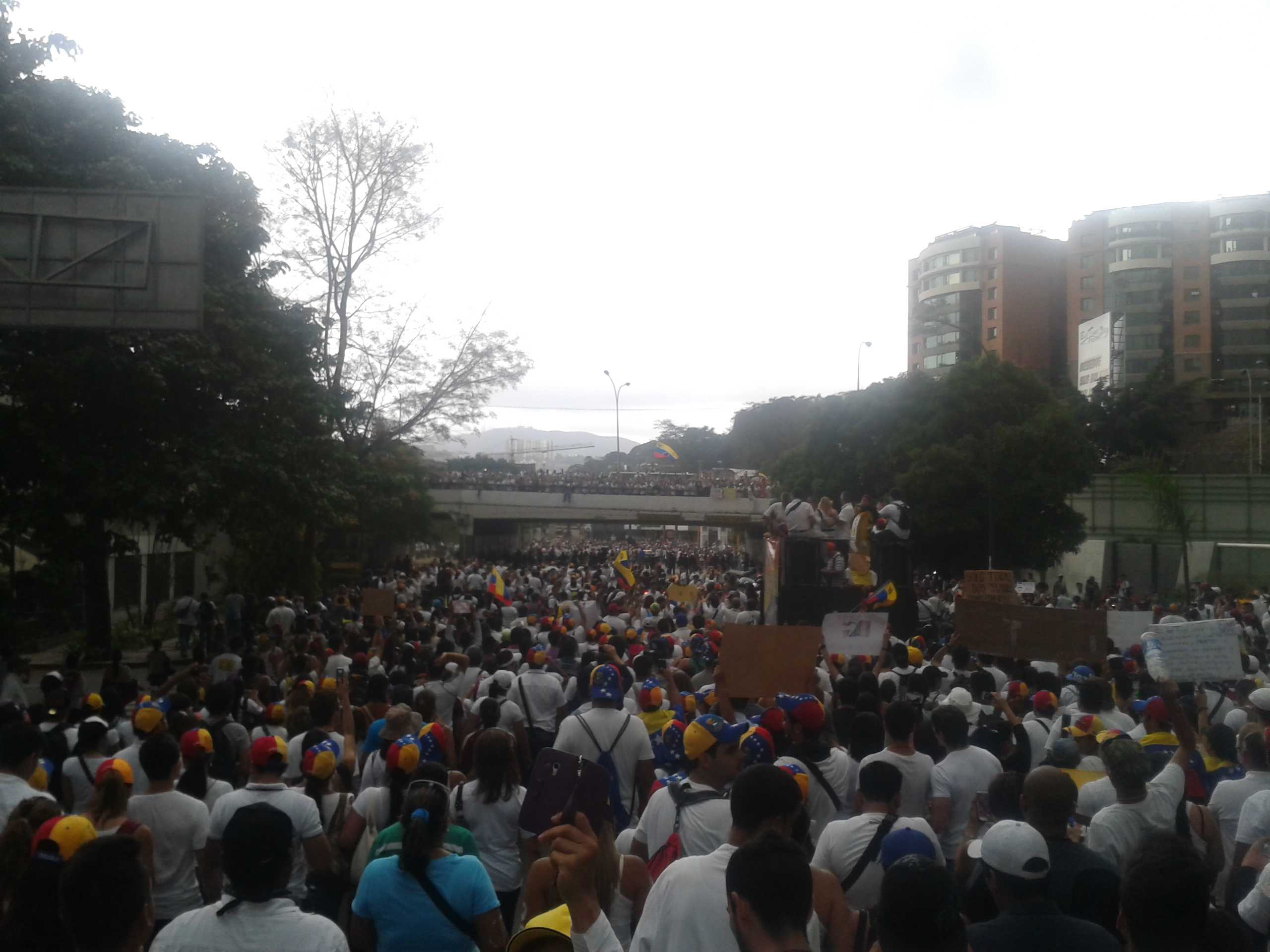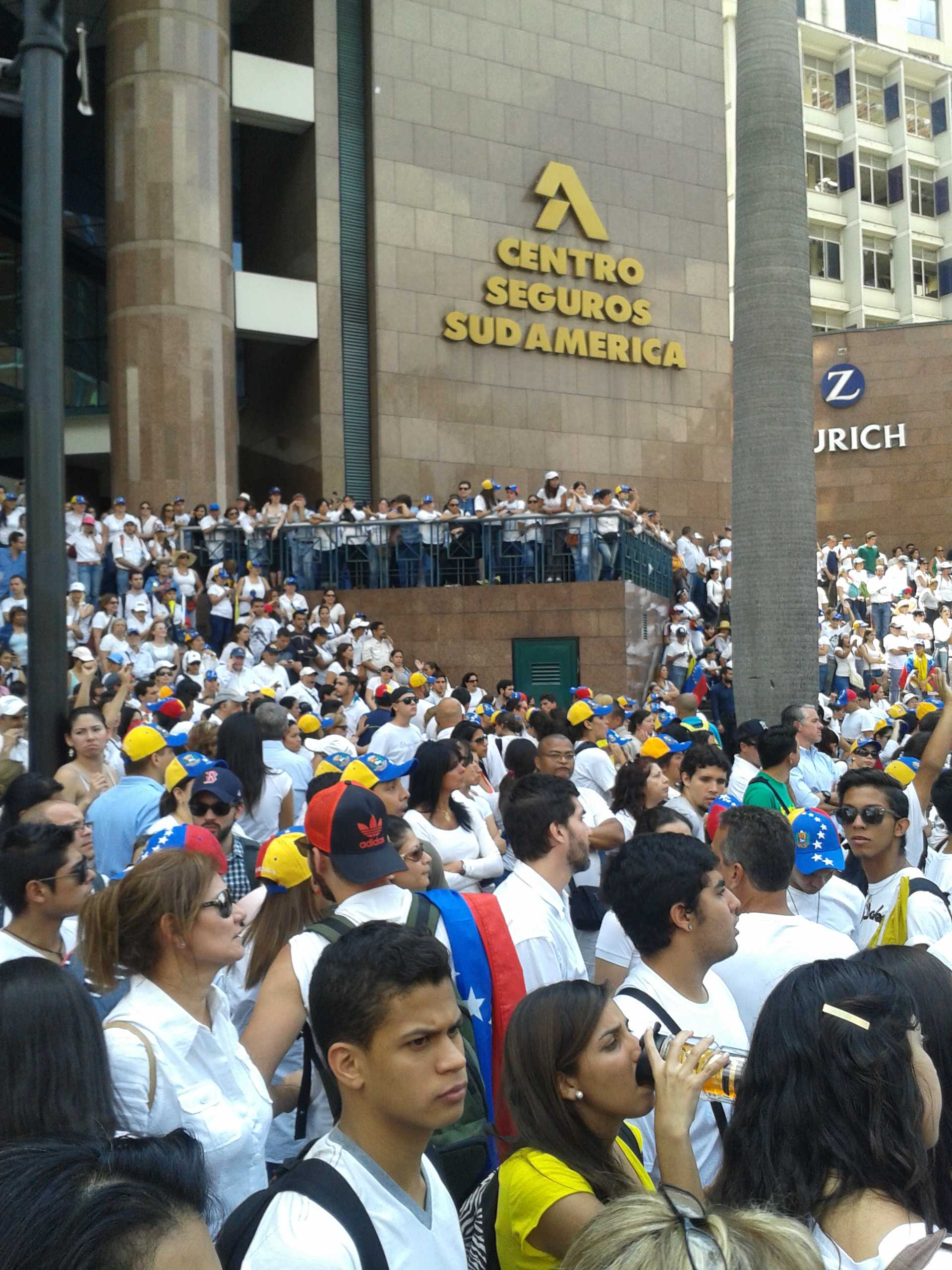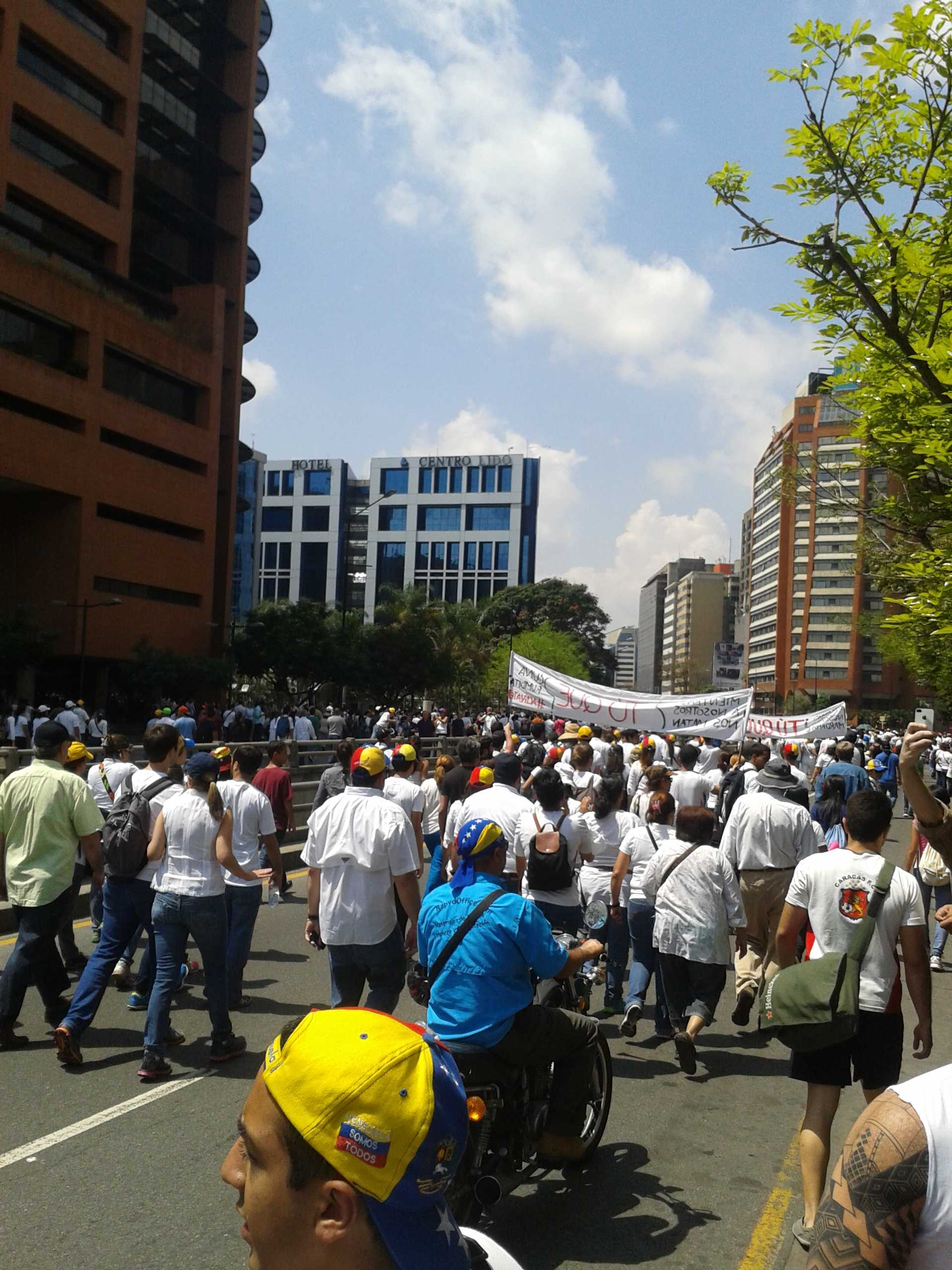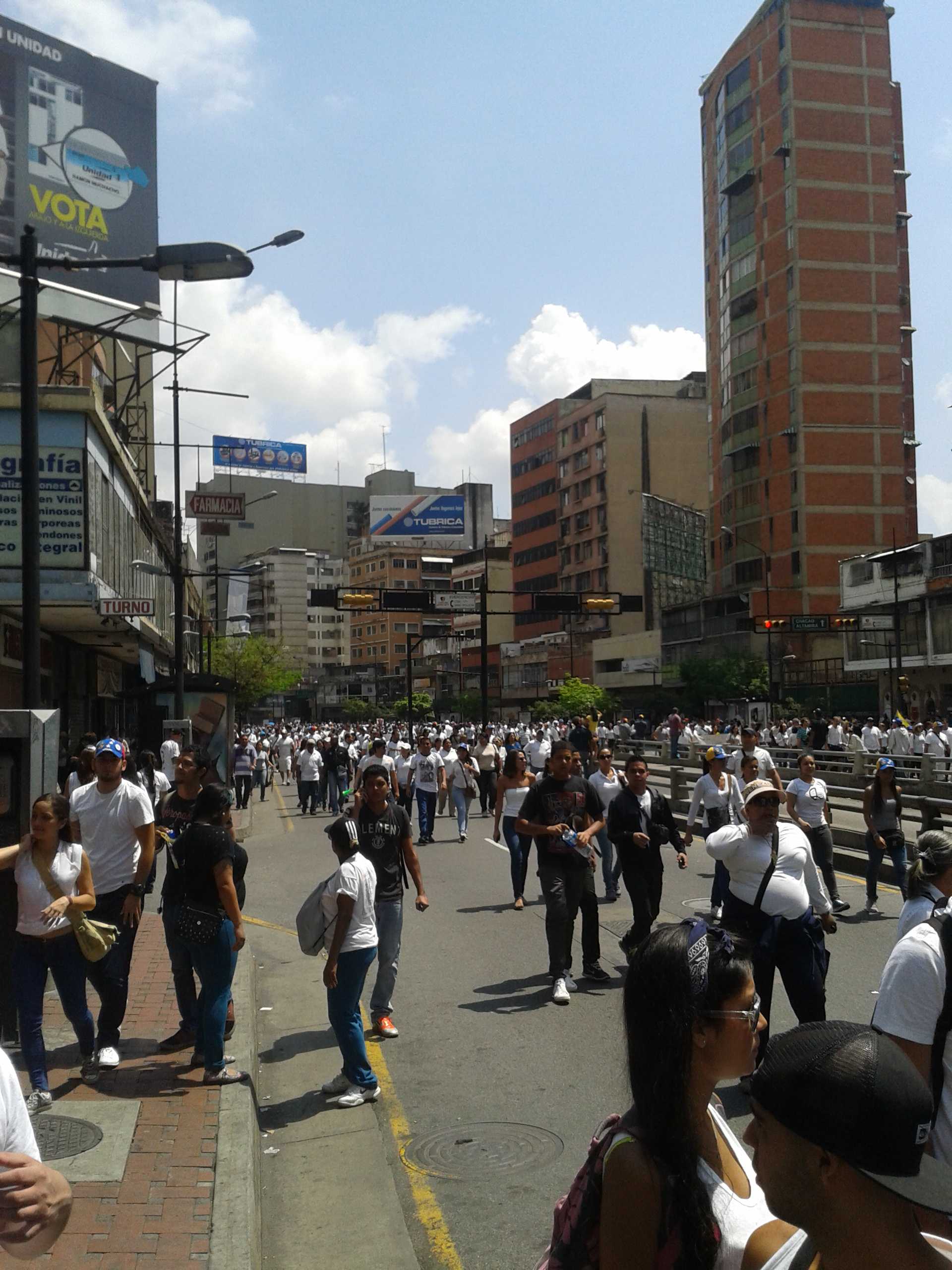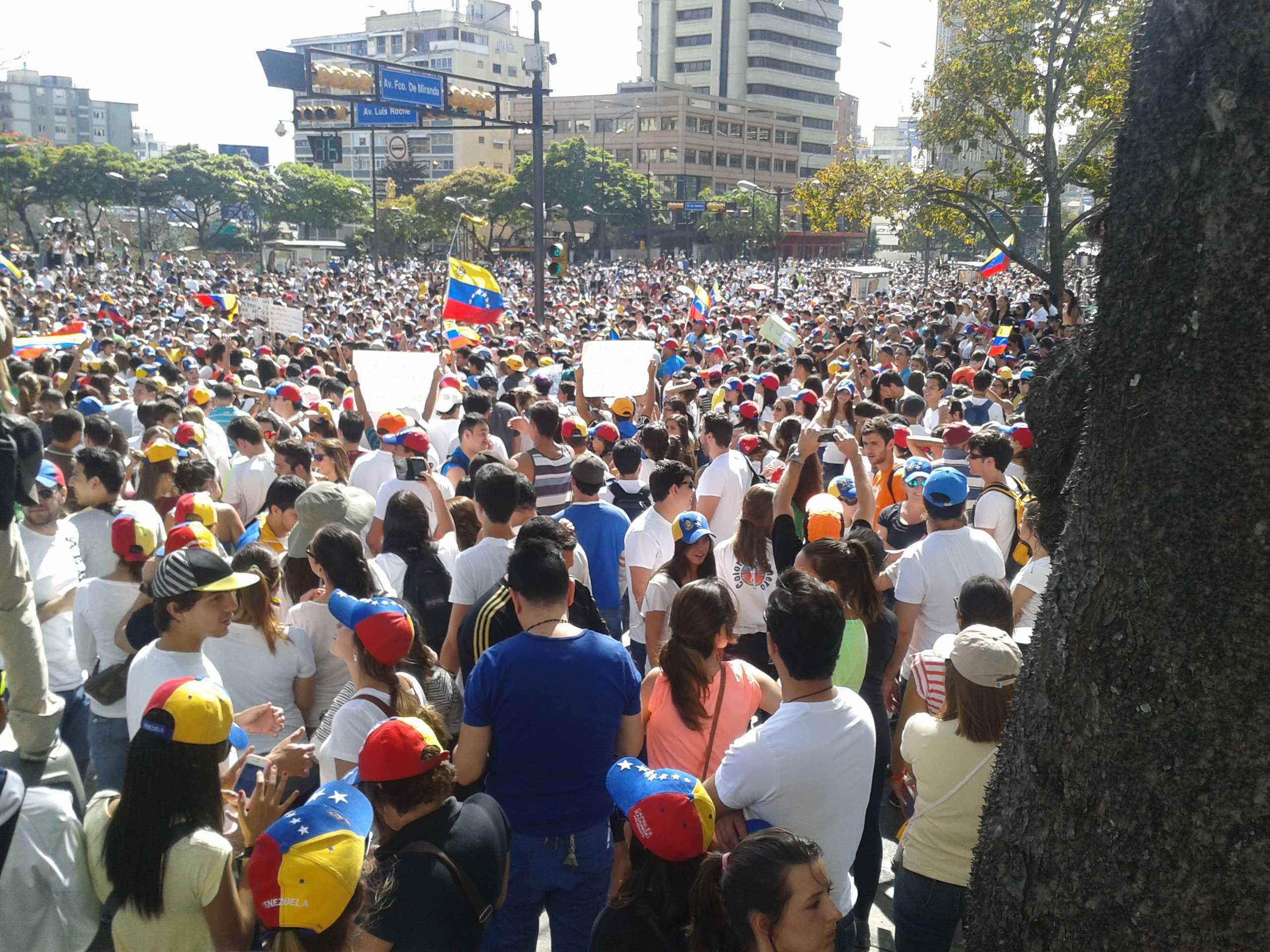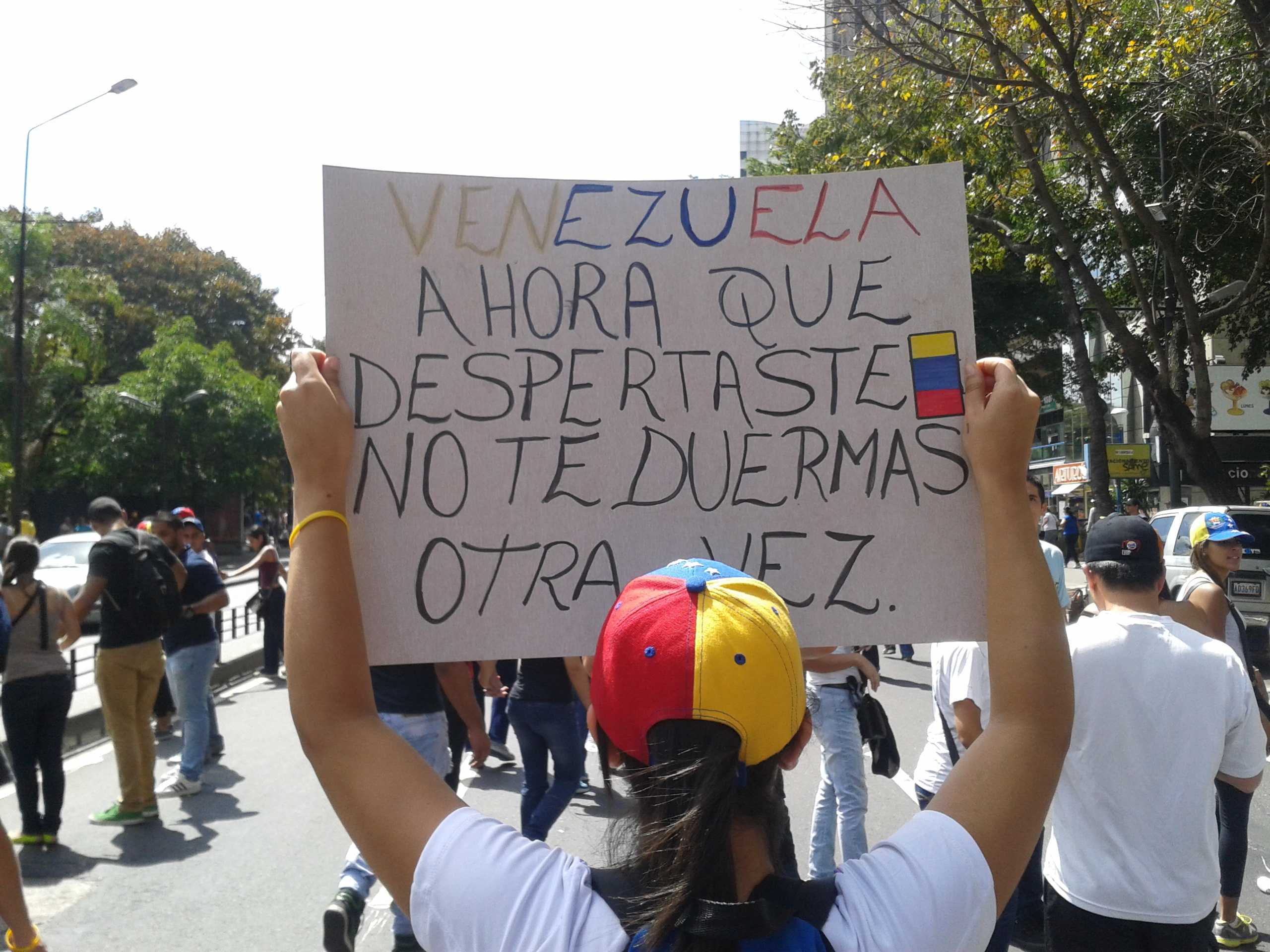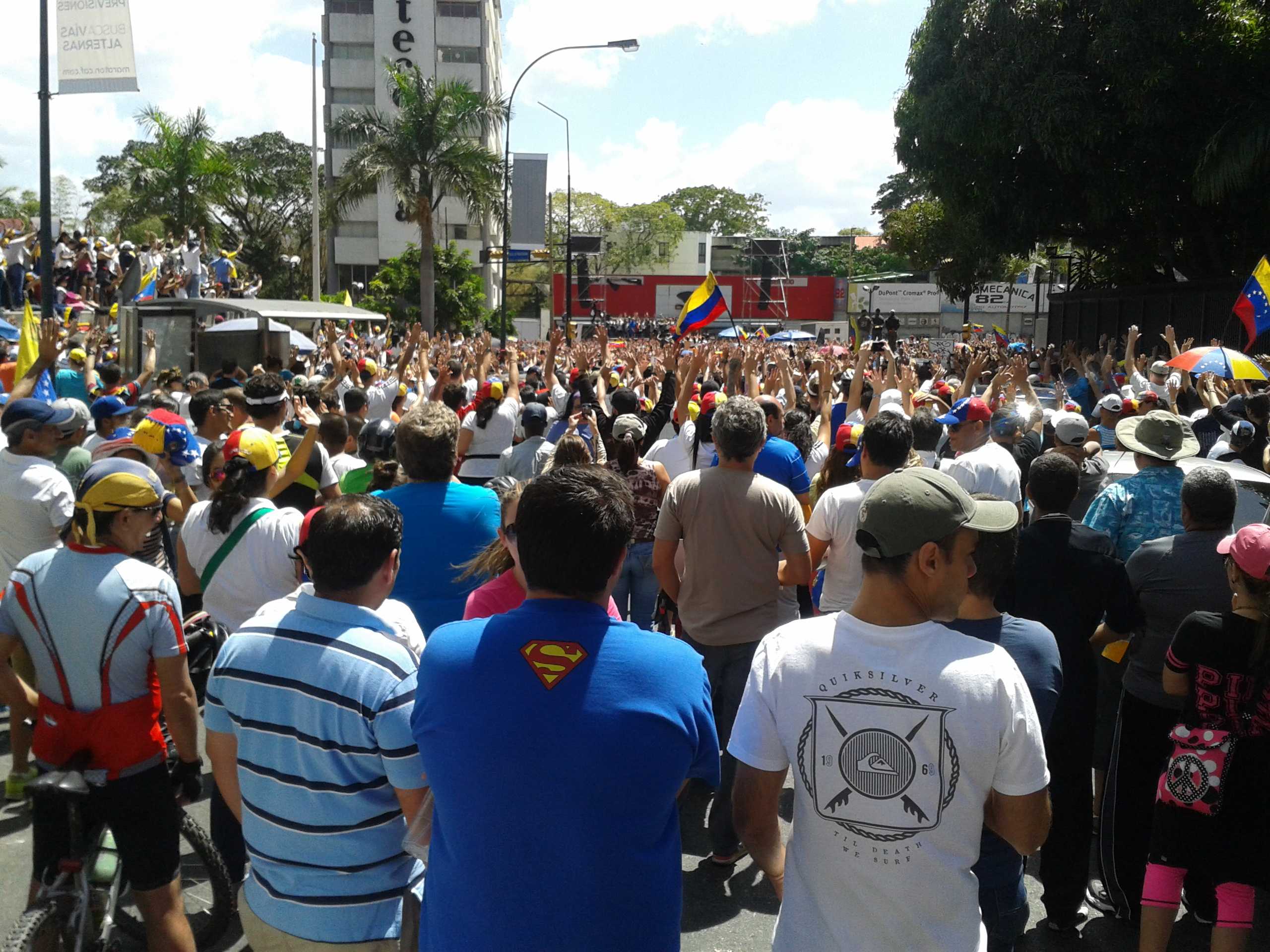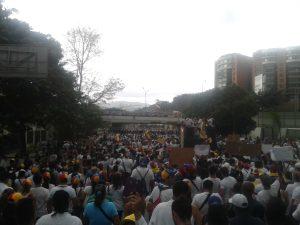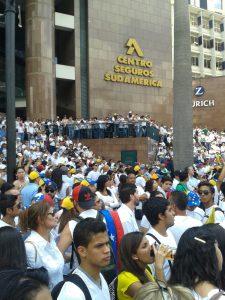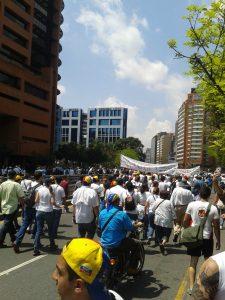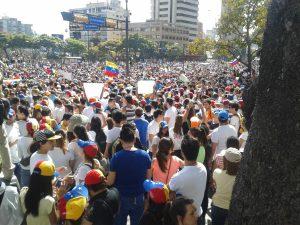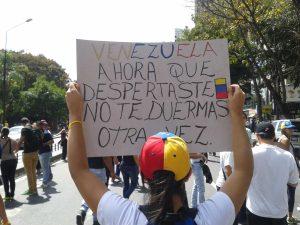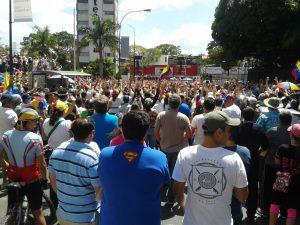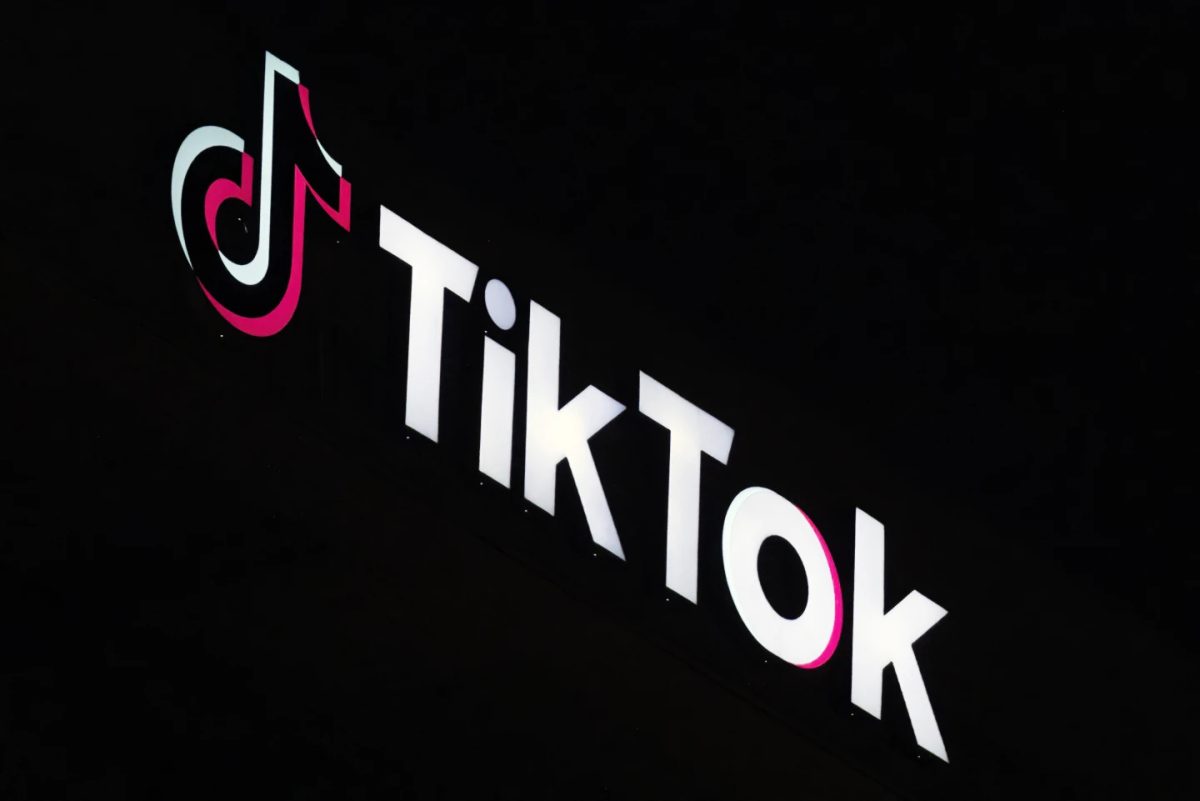On Feb. 18, while Venezuela opposition leader Leopoldo López turned himself in to government custody as thousands of people protested the injustice going on in the country, the most popular national television station showed a telenovela.
You may ask: why should anyone care?
As a Venezuela native, I’m sorry to see the country has come into the international spotlight for the media’s blatant neglect of a series of peaceful-turned-violent protests.
On Feb. 12, Venezuela’s National Youth Day, college students protested the nation’s social and economic crisis.
Throughout the peaceful manifestations, students carried their phones to spread the word through social media and posters with messages against the government of President Nicolás Maduro and the problem of insecurity in the developing nation.
In the middle of the manifestations—taking place in every major city in the country—Venezuelan military forces used physical harm, released tear gas bombs and opened fire at protesters for exercising their rights.
There is no information on how many students the military murdered during the riots, but as of Feb. 14, there have been three confirmed deaths and many more unconfirmed deaths throughout the country.
Think of it as Occupy Wall Street, but instead of leaving the protesters alone, the government decides to send the military to harm them.
This is a crime because the military, trained to protect the public, is instead ordered by the government to sabotage peaceful demonstrations so President Maduro can declare the protests a conspiracy to violently take the presidency away from him.
Too long did the Venezuelan people keep quiet while the supply of toilet paper and groceries grew slim, or while hundreds of people were being murdered without cases ever being solved. Now they’ve decided to speak up, and the government is desperately trying to shut them up.
As Maduro stands at his podium preaching during a nationwide telecast that the “fascist conspirators” – a term he uses to describe opposition leaders like López – will be stopped. Witnesses testify through social media that armed forces are torturing and raping college students who were exercising their civil right to be angry.
What is perhaps the most hideous crime throughout this ordeal, and the hook that captured the international media’s attention, is the fact that the national press — now owned by the government — was not covering any of the protests that halted the lives of people within the major cities.
The government regulates the media to keep their brainwashed lower-class supporters from being informed of the injustices happening right outside their doors.
With no freedom of the press, students resorted to Twitter to spread their plea to international authorities and beg the world to bring light to the oppression taking place in Venezuela.
On Feb. 14, in an attempt to keep information from getting out, the government blocked Twitter images in the country.
Venezuela’s youth found loopholes to the blockade and continued posting information to the popular social media site. This is currently the only way people on the outside can stay informed on what is going on in the country.
The Venezuelan government’s actions this past week turned what was supposed to be a peaceful gathering to protest insecurity into an all-out discussion on the freedom of speech, as well as bringing the country to a halt.
My brothers—currently enrolled in a private elementary school in the capital city Caracas—haven’t gone to school in a week.
One of them, Carlos Tapia, celebrated his 10th birthday but had to wait to get a present and couldn’t invite friends over because all malls and shopping centers are closed and leaving homes is unsafe.
But the fact that I am from Venezuela and I have family and friends living in Venezuela isn’t the only reason I care about this issue. Any violation of our rights has to be front page news, no matter where in the world it is happening.
Since the national media are unable to cover what’s happening properly, it is an international news organization’s responsibility to bring to light what is going on, in order for the government to be held accountable for their crimes.
Venezuela needs help, and it needs it now.
Jose Bastidas is a 20-year-old mass communication junior from The Woodlands, Texas.
Opinión: Acciones del gobierno venezolano son crímenes contra la humanidad
Opinion: Venezuelan government’s actions are crimes against humanity
February 19, 2014
Opposition leader Leopoldo Lopez, dressed in white and holding up a flower stem, is taken into custody by Bolivarian National Guards, in Caracas, Venezuela, Tuesday, Feb 18, 2014. Lopez re-emerged from days of hiding to address an anti-government demonstration and then he turned himself in to authorities Tuesday. Speaking to some 5,000 supporters with a megaphone, Lopez said that he doesn’t fear going to jail to defend his beliefs and constitutional right to peacefully protest against President Nicolas Maduro. (AP Photo/Alejandro Cegarra)



